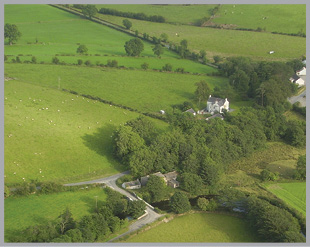Elements of success

Connectivity
Ireland is ideally positioned to act as a connection point between the busy US and European markets and is continuing to develop the infrastructure to allow it to do so. Trans-Atlantic undersea fibre cables have been increased, as have connections to Europe and the UK. These connections are set to boost Ireland’s attractiveness for investment post-Brexit. The ability to provide access or link these two markets has already proven to be an effective attraction for huge global businesses such as Microsoft, Facebook, Google and Apple and the cluster effect created by the T-50 trunking fibre system, which shadows the route of the M50 motorway, has already shown itself to be an alluring piece of infrastructure for new investors.
Location
Mass volumes of heat generated from operational large data centres has proven costly for operators to control and cool. While recent innovations have seen some operators attempt to recycle the access heat for use elsewhere, these projects have not yet been adopted on a mass scale. As operators seek ways of lowering the cost of heat management, Ireland’s natural climate puts it at an advantage (providing natural cooling) over many other major European cities, with a warmer climate.
In terms of location, Ireland also has the advantage of greater availability of land space. While real estate prices in Dublin compare favourably with London, for example, the potential for mobile working in relation to data centres offers operators the opportunity to locate staff less-centrally.
Power and renewable potential
Ireland’s power generation, boosted by improved methods of harvesting energy from renewable sources such as wind and tidal, has the capacity to facilitate the current selection of data centres. This is important when compared with other locations across Europe, where over-capacity has become an issue. While it has been indicated that Ireland will need to increase its capacity in order to facilitate major data centre projects already in planning, the ability to offer 100 per cent renewable energy has become more pivotal in attracting new investments.
Economy
Ireland’s financial collapse required greater innovation in terms of attracting investment and the country has seized upon some of the opportunities offer by digital and data. Coming out the other side of the crash Ireland is viewed internationally as a rapidly-growing economy by multinationals looking for a base in which to access the various markets. These companies have also been attracted by Ireland’s low corporation tax of 12.5 per cent, the lowest in Europe.
Skills
Ireland’s growing economy with a focus on digital has also seen employment training and skills tailored to suit the potential new job market. Access to a wide range of skills and a multinational workforce is appealing to those hoping to locate in Ireland. Furthermore the UK’s impending withdrawal from the EU will render Ireland the only predominately English-speaking member state.











